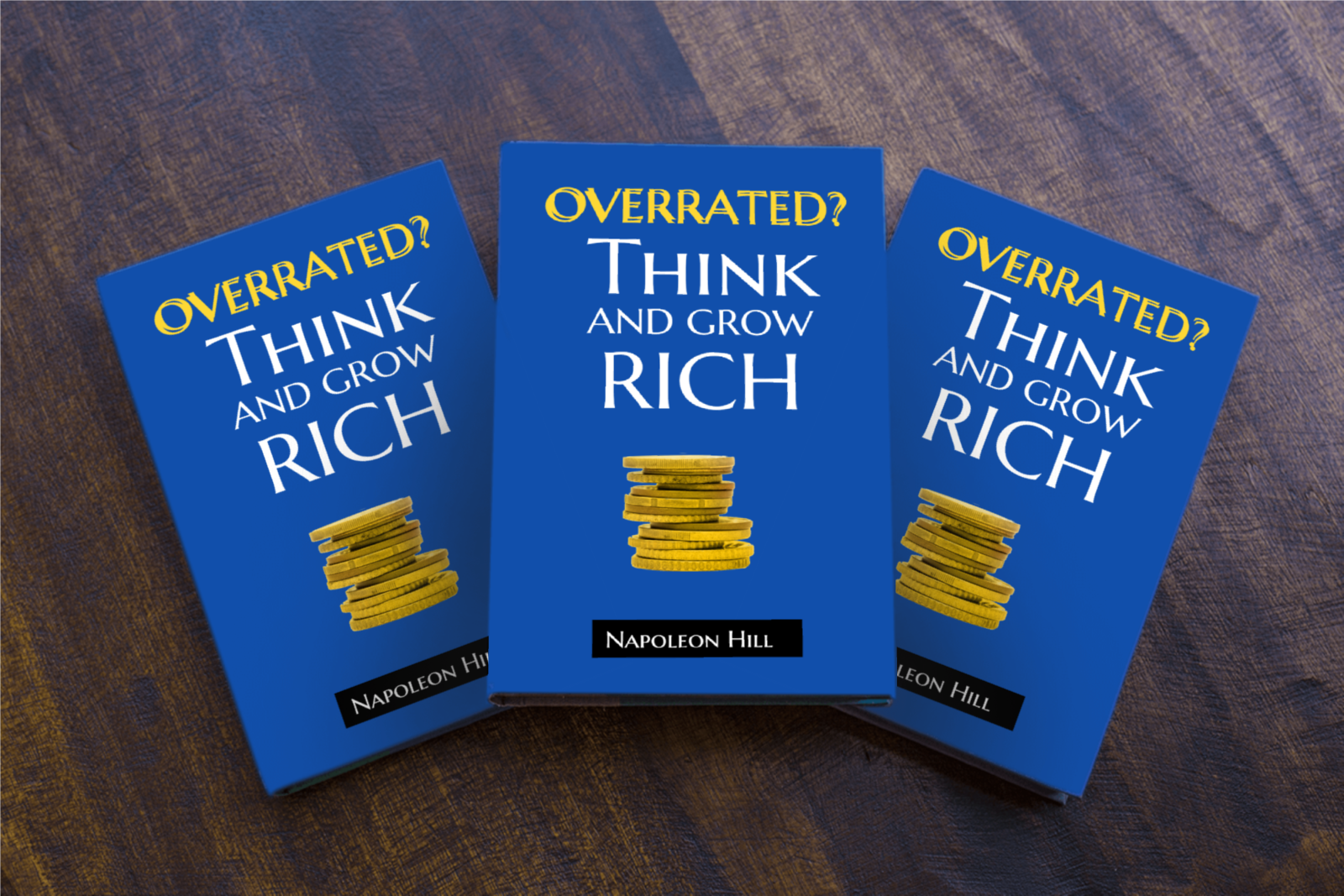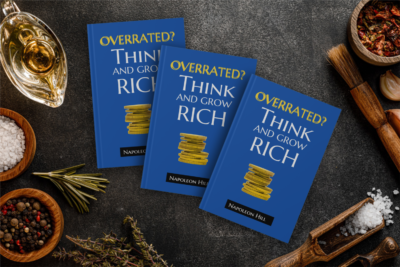Who Else Thought “Think and Grow Rich” Was Overrated? Discovering Its Secrets at the Right Time
For many, “Think and Grow Rich” by Napoleon Hill is a legendary guide to success. But if you’ve ever found yourself slogging through its pages only to distill the message down to “burning desire” and “definiteness of purpose,” you’re not alone.
For years, I felt the same way. It felt overrated, even frustrating, especially when giants like Bob Proctor touted its wisdom. Here’s my story of how my relationship with the book evolved and what I learned about the importance of timing and self-discovery.
The Misaligned Purpose: My First Encounter
Napoleon Hill’s Think and Grow Rich has inspired countless readers, but for many, it feels overrated or even useless. If you’ve ever read the book and found its principles falling flat, it has nothing to do with the book itself, but with where you are in your journey.
The truth is, Think and Grow Rich can feel irrelevant or frustrating if you haven’t yet found your true purpose.
When I first picked up “Think and Grow Rich,” I was hungry for answers. Like many, I wanted a roadmap to wealth, success, and happiness. But as I read, I struggled to connect.
The cornerstone ideas—“burning desire” and “definiteness of purpose”—are powerful, but only when grounded in something that resonates deeply with your soul. Without a true calling, these concepts might feel hollow, like trying to light a fire with wet wood.
You can desire something desperately, but if it’s not aligned with who you truly are, your motivation will fade, and the effort will feel forced.
Once you find your purpose, though, the entire framework of Think and Grow Rich transforms.
It becomes a roadmap for turning your vision into reality.
Until then, the book might seem like a series of lofty ideals that are impossible to act on. The missing piece isn’t Hill’s wisdom—it’s your connection to your true calling. Without it, Think and Grow Rich can’t ignite the spark you need to take action or persevere.
The concept of a “burning desire” felt fleeting for me. I had desires, sure, but they were driven by trends, external validation, and the expectations of others. My so-called “definiteness of purpose” was more about what I thought I should do than what truly ignited my soul.
Despite my efforts, I couldn’t stick to any one goal for long. My enthusiasm would wane, and I’d feel like a failure. I couldn’t understand why Hill’s principles worked for others but left me feeling more lost.
Think and grow rich
The Turning Point: Discovering My True Calling
The truth hit me like a lightning bolt AFTER I found my true calling. Without that alignment, all the burning desire and purpose in the world wouldn’t stick. My goals weren’t anchored in my authentic self—they were like a house built on sand.
Everything changed when I found my true calling. It wasn’t just a passion or a passing interest; it was something I’d fight to stay connected with, even on my hardest days. When your purpose resonates that deeply, procrastination fades, and “burning desire” becomes a living, breathing force that propels you forward.
Suddenly, Hill’s principles made sense. Definiteness of purpose isn’t about chasing trends or money—it’s about a goal so aligned with your essence that the pursuit itself becomes fulfilling. This is the foundation for the resilience and clarity Hill describes.
The moment I discovered my true calling, everything shifted. It was no longer about forcing myself to work on goals that felt disconnected or hollow. My true calling sparked a fire so deep that even on my hardest days, I couldn’t imagine walking away from it. This wasn’t just a fleeting passion—it became a force that got me out of bed, even when my body begged me to stay under the covers.
Sleep started to feel like an interruption rather than a necessity. I’d find myself staying up late, completely engrossed in what I was doing, yet waking up the next morning with a renewed sense of purpose. Dragging myself away from my computer wasn’t an act of discipline anymore; it was something I had to do to take care of myself, even when I wanted to keep going.
For the first time, my work didn’t feel like “work.” It felt like a mission. Tasks that once seemed mundane became meaningful because they aligned with something bigger than myself. I had found a reason to push through exhaustion, embrace challenges, and keep growing. My calling gave me clarity, passion, and an unshakable sense of direction—and I finally understood what Napoleon Hill meant by a “burning desire.”
How “Think and Grow Rich” Clicked
Revisiting the book after finding my true calling felt like stepping into a completely different world. The chapters on faith, visualization, and persistence no longer felt abstract. They became practical tools to amplify my mission.
For example:
- Faith: I learned to trust that my calling was guiding me, even when external validation was lacking.
- Persistence: Sticking with my purpose became effortless because it felt like a natural extension of who I am.
- Visualization: Imagining my future wasn’t a chore—it became an inspiring ritual.
This wasn’t just theory anymore; it was the fuel I needed to overcome challenges and embrace my journey.
Think and grow rich


